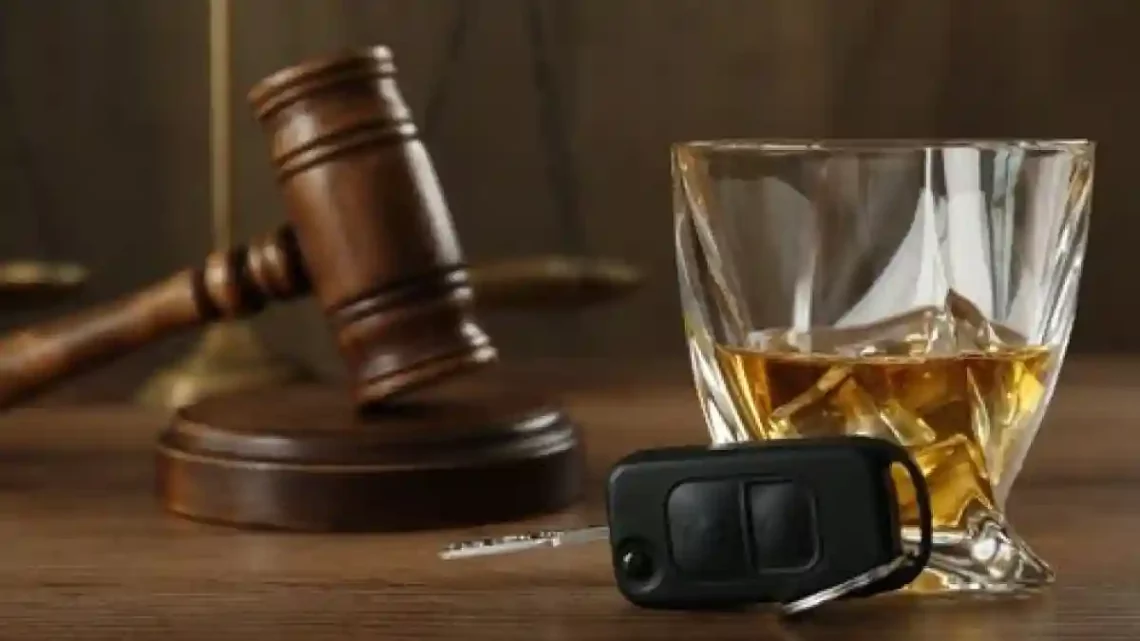
Understanding Texas DUI Laws and Penalties: First Offense DWI and Impaired Driving
March 13, 2024Driving while intoxicated (DWI) is a serious offense that can lead to severe penalties in the state of Texas. It is important for individuals to understand the laws and potential consequences associated with DWI charges. This article aims to provide a comprehensive overview of Texas DWI laws and the legal implications of a first offense DWI, along with the potential penalties and defense strategies.
Understanding DWI in Texas
What is considered a DWI in Texas?
In Texas, DWI refers to the act of operating a motor vehicle while intoxicated by alcohol or drugs. The legal blood alcohol concentration (BAC) limit for individuals over the age of 21 is 0.08%. For individuals under 21, any detectable amount of alcohol in their system constitutes a DWI offense.
What are the penalties for a DWI in Texas?
Individuals convicted of DWI in Texas may face severe penalties, including fines, license suspension, and potential jail time. The specific penalties can vary depending on the circumstances of the offense and whether it is a first-time DWI charge or subsequent offense.
What are the defenses against a DWI charge in Texas?
There are various defense strategies that individuals can employ when facing a DWI charge in Texas. These may include challenging the legality of the traffic stop, disputing the accuracy of BAC test results, or demonstrating that one was not actually impaired while operating the vehicle.
Consequences and Penalties of DWI
What are the potential penalties for a DWI conviction?
Depending on the specific circumstances, a DWI conviction in Texas can result in substantial fines, license suspension, mandatory participation in alcohol education programs, and potential incarceration.
How does a first offense impact DWI penalties?
A first offense DWI may carry lighter penalties compared to subsequent offenses, but it can still result in significant repercussions such as fines, license suspension, and potential jail time.
What are the specific penalties for driving with a child passenger while intoxicated in Texas?
In Texas, driving with a child passenger while intoxicated can lead to enhanced penalties, including higher fines, extended license suspension, and possible child endangerment charges.
Legal Proceedings and Defense Strategies
What are the potential consequences of a DWI conviction in Texas?
Consequences of a DWI conviction in Texas may include a permanent criminal record, increased insurance costs, and potential limitations on employment opportunities.
How does a DUI charge differ from a DWI charge in Texas?
While both DUI (driving under the influence) and DWI (driving while intoxicated) refer to impaired driving offenses, in Texas, DWI specifically pertains to operating a motor vehicle with a BAC over the legal limit, whereas DUI may apply to underage individuals with any detectable amount of alcohol in their system.
What are the available defense strategies for fighting a DWI charge in Texas?
Defense strategies for fighting a DWI charge in Texas may include challenging the accuracy of field sobriety tests, disputing the legality of the arrest, or presenting evidence of medical conditions that could impact BAC test results.
Texas DUI Laws and Legal Implications
What is the legal definition of driving under the influence in Texas?
In Texas, driving under the influence refers to operating a motor vehicle while impaired by alcohol or drugs, with a BAC above the legal limit. The state imposes harsh penalties for individuals found guilty of driving under the influence.
What are the criminal penalties for operating a motor vehicle while intoxicated in Texas?
Criminal penalties for operating a motor vehicle while intoxicated in Texas can include fines, license suspension, mandatory participation in alcohol or drug education programs, and potential jail time.
What are the implications of a state jail felony conviction for a DWI in Texas?
A state jail felony conviction for DWI in Texas can result in substantial fines, extended incarceration, and a permanent criminal record, significantly impacting an individual’s future prospects.
Factors Affecting DWI Convictions
How does the use of mental or physical faculties impact a DWI charge?
The use of mental or physical faculties can impact a DWI charge, as it may be evaluated to determine the level of impairment while operating a motor vehicle. Impairment of faculties can significantly impact the outcome of a DWI case.
What are the potential penalties for driving under the influence of alcohol in Texas?
Individuals driving under the influence of alcohol in Texas may face harsh penalties, including substantial fines, license suspension, mandatory participation in rehabilitation programs, and potential jail time.
What is the possible jail time for a first-offense DWI in Texas?
For a first-offense DWI in Texas, individuals may face up to 180 days in jail, along with fines and other penalties associated with the conviction.
What is the difference between DUI and DWI in Texas?
In Texas, DUI stands for “driving under the influence,” and it typically refers to minors (under 21) being caught with any detectable amount of alcohol in their system. DWI, on the other hand, stands for “driving while intoxicated,” and it applies to individuals of legal drinking age (21 and older) who are found to have a blood alcohol concentration (BAC) above the legal limit of 0.08%.
What are the penalties for a first-time DWI offense in Texas?
A first-time DWI offense in Texas can result in penalties such as a fine of up to $2,000, a jail term of 72 hours to 180 days, license suspension for up to 2 years, and an annual surcharge of $1,000 or $2,000 for 3 years to retain your driver’s license.
Do I need a DWI defense attorney for my case in Texas?
It is highly advisable to seek the assistance of a DWI defense attorney if you have been charged with a DWI in Texas. A qualified attorney can provide legal guidance, evaluate your case, and work to build a strong defense on your behalf.
What are the penalties for DWI with a child passenger in Texas?
In Texas, if a person is arrested for DWI with a child passenger under 15 years old in the vehicle, it is considered a state jail felony, which carries penalties including a fine of up to $10,000 and 180 days to 2 years in jail.
What are the potential defenses for a DWI charge in Texas?
Defenses for a DWI charge in Texas may include challenging the legality of the traffic stop, disputing the accuracy of field sobriety tests or breathalyzer results, or presenting evidence of a medical condition that could have affected the test results.
How does a second DWI offense impact penalties in Texas?
A second DWI offense in Texas may lead to harsher penalties, including larger fines, longer license suspension, mandatory installation of an ignition interlock device, and a longer jail term compared to a first offense.
What are the implications of a third DWI offense in Texas?
A third DWI offense in Texas is considered a third-degree felony and may result in significant penalties, including a fine of up to $10,000, 2 to 10 years in prison, and a longer license suspension period.
How does Texas penal code address DWI and impaired driving?
The Texas penal code addresses DWI and impaired driving by outlining specific offenses, penalties, and legal provisions related to driving while intoxicated, including laws pertaining to BAC limits, penalties for repeat offenses, and consequences for DWI with aggravating factors.
What are the potential consequences of being charged with a DWI in Texas?
Being charged with a DWI in Texas can have serious repercussions, including possible fines, license suspension, increased insurance rates, mandatory participation in alcohol education programs, and the creation of a permanent criminal record.
How does Texas law handle first-time DWI offenders?
Texas law imposes penalties on first-time DWI offenders, including fines, potential jail time, and license suspension. Additionally, first-time offenders may be required to attend a mandatory alcohol education program and could face increased insurance costs.


